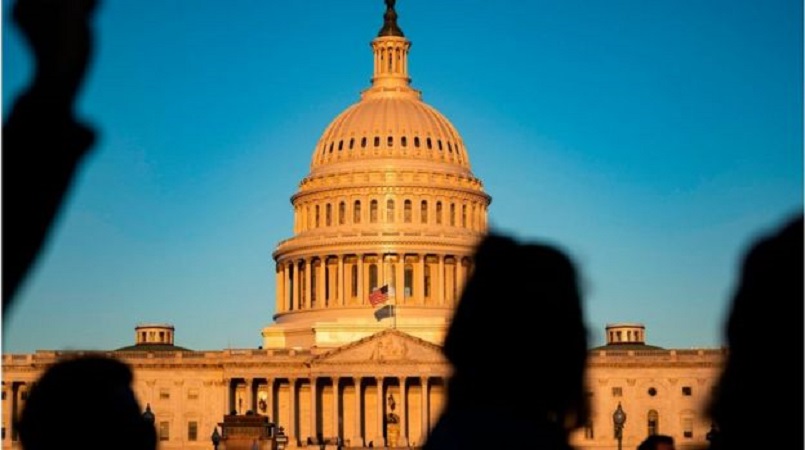
President Trump has said he will name a replacement to Ruth Bader Ginsburg by week's end and urged the Republican-controlled Senate to confirm his Supreme Court choice before 3 November.
The plan has launched a high-stakes battle with far-reaching political consequences ahead of the election.
Mr Trump would replace Ginsburg, a liberal stalwart who died on Friday aged 87, with a conservative.
Approval would cement a right-leaning majority on the court for decades.
The appointment of judges to the Supreme Court is a political decision in which the president chooses who is put forward. The Senate then votes to confirm - or reject - that choice.
The ideological balance of the nine-member court is crucial to its rulings on the most important issues in US law.
On Monday, the president signalled he would nominate a replacement on "Friday or Saturday", after memorial services for Ginsburg.
"The bottom line is we won the election, we have an obligation to do what's right and act as quickly as possible," Mr Trump told Fox News.
Once the president names a nominee, the Senate votes on whether to confirm them. The Judiciary Committee will review the pick first, and then vote to send the nominee to the floor for a full vote.
Republicans hold a slim 53-47 majority in the upper chamber. Senate majority leader Mitch McConnell has vowed to hold a confirmation vote before the election in November.
The declaration has sparked furore from Democrats, who have accused Mr McConnell and the Republicans of hypocrisy.
Following the death of conservative justice Anthony Scalia in 2016, Mr McConnell refused to hold a vote to confirm a nominee put forward by then-President Barack Obama, a Democrat.
Mr Obama had nominated Merrick Garland in February of that year - months before the election - but Mr McConnell argued that Supreme Court justices should not be approved in an election year.
In 2017, Mr McConnell also changed Senate rules to allow for a simple majority (51 votes) to confirm nominees.
However, this time around, with a president of the same party, the Senate leader says because the Senate and White House are both Republican-held, unlike 2016, the nomination should proceed.
